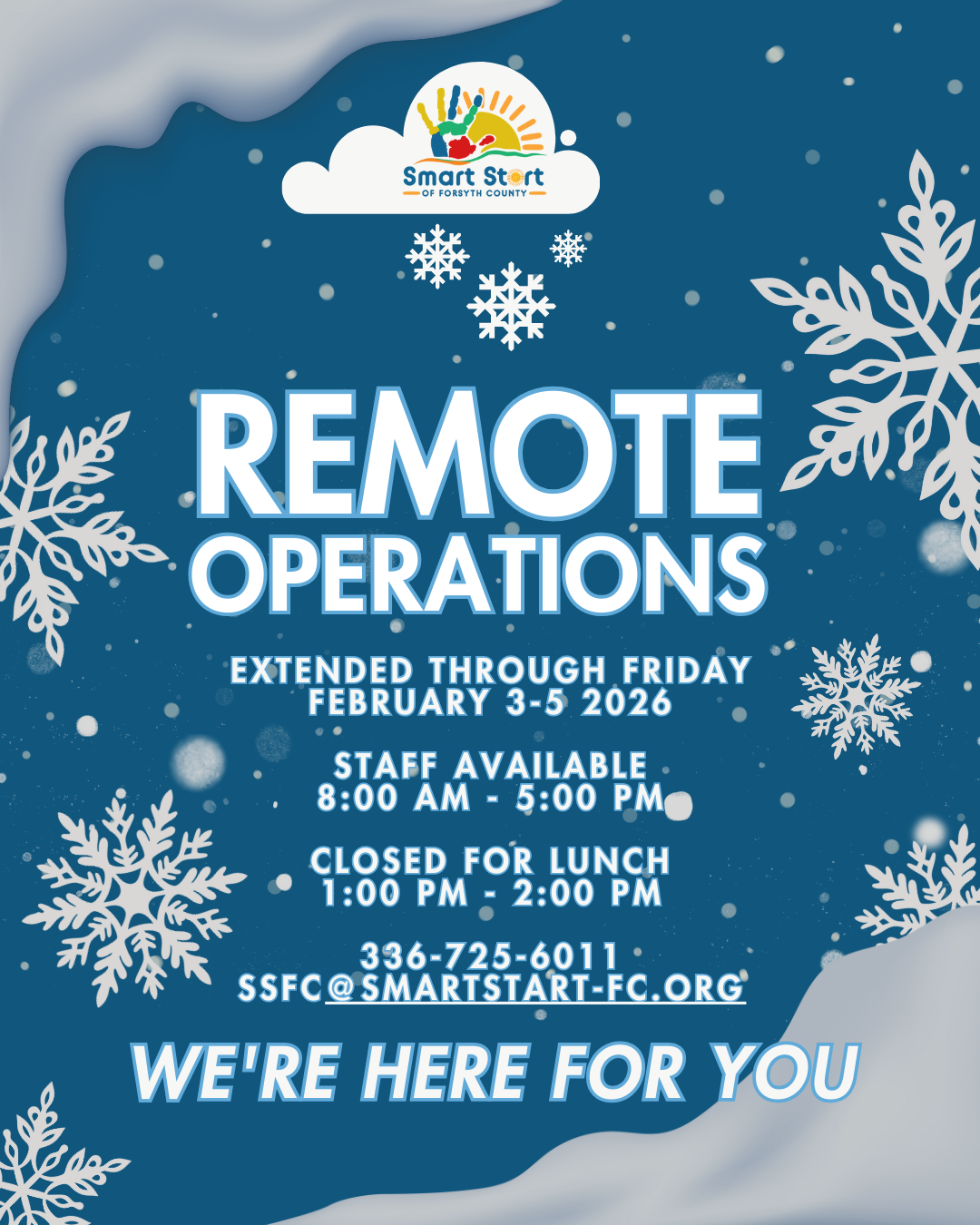Learn about the difference between teacher-generated and child-generated art, how to incorporate 3D Art with all age groups in your classroom, and how to improve creativity in the learning environment. Register Here!
Due to inclement weather and office closure, tonight’s Dental professional development session scheduled for Tuesday, February 3rd has been cancelled. We apologize for any inconvenience. We will announce future professional development opportunities through our newsletter and social media channels. For questions, please contact Susan Smith at [email protected] or call (336) 714-4351.
Learn what assessors are looking for in the classroom environment as well as the teacher-child interactions that impact infant and toddlers’ developmental milestones. Also, discuss practices that will help increase your scores.
Participants will receive handwashing, diapering, toileting, and sanitation procedures as they are performed multiple times a day. While an early educator may believe that they already know how to properly wash hands, diaper children, assist with toileting, and clean, this training can help improve or refine their behavior to keep themselves and children healthy. Reviewing proper technique is a good reminder that these processes are beyond cleanliness but can also prevent the spread of infectious disease.
Engineering activities provide opportunities for children to grow and mature, and engineering design challenges promote social and emotional learning. In early childhood settings, educators and young children solve problems using available materials and an engineering design process. The process is not step-by-step because it looks different depending on the age of the children, the time available, and their engagement with adults, helping them reflect on their work and process. Learn what this looks like and how to incorporate this into your classroom.
This training emphasizes creating respectful, inclusive environments that celebrate cultural diversity and promote equity. It defines cultural competency as an ongoing process of self-awareness, learning, and action, and inclusion as ensuring participation and belonging for all children. The presentation outlines the benefits of these practices, such as stronger social-emotional development, academic success, and preparation for a diverse world, while offering practical teaching strategies and addressing common challenges like bias and limited resources.
Outdoor play is vital in early childhood education, letting children express themselves and burn energy. Kids explore nature, take risks, and build confidence. Extending classroom centers outdoors develops skills like pretend play. When children invent games, they use imagination and resources to create new realities, enhancing socialization and language as they share ideas with peers. This gives them more control over learning. Join us to discover exciting outdoor learning opportunities for your center.
Participants will learn the four supportive steps to help young children identify their feelings, learn healthy self-control, and reduce challenging behaviors.
During this training, you will be introduced to the indicators a CLASS assessor will evaluate. The trainer will clarify the criteria assessed for each indicator.
During this training, you will be introduced to the indicators a CLASS assessor will evaluate. The trainer will clarify the criteria assessed for each indicator.


